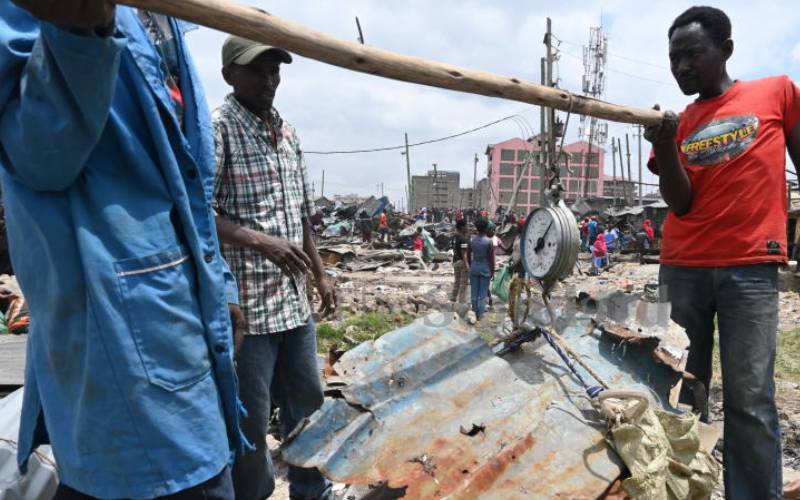×
The Standard e-Paper
Kenya’s Boldest Voice

Scrap metal dealers weighing iron sheets at Mukuru kwa Njenga slum, Nairobi. [Denish Ochieng, Standard]
Nakuru scrap metal dealers have appealed to the government to lift the ban on their business, noting the move had occasioned them unprecedented losses.